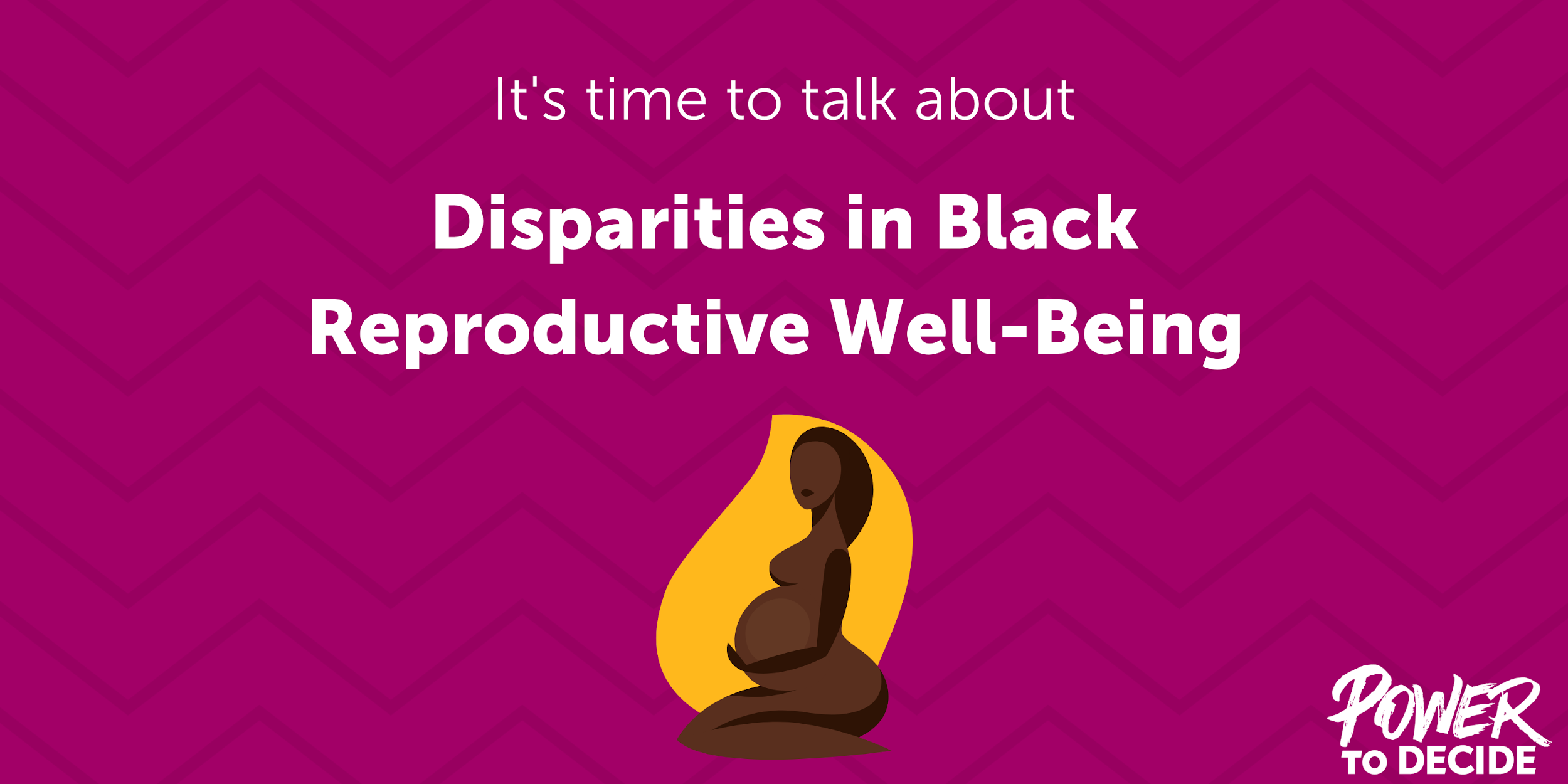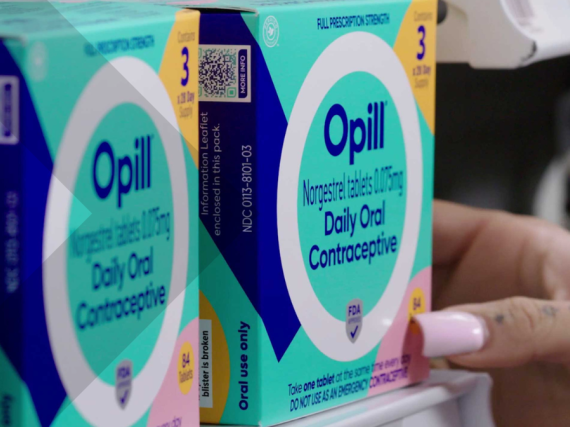Disparities in Black Reproductive Well-Being
Racism is a public health crisis that permeates every section of society, including reproductive and sexual health care. It is long past time to address the fact that Black women face tremendous barriers to achieving their reproductive well-being.
Reproductive well-being means that all people have the information, services, and support they need to have control over their bodies and to make their own decisions related to sexuality and reproduction throughout their lives. It means that every person—no matter who they are or where they live—can achieve the reproductive outcomes they want, whether or not they have children; and for those who do want a child, ensures healthy outcomes for themselves and their families. The research shows that there are formidable disparities in reproductive well-being for Black women compared to their white counterparts. While many factors play a role in contributing to these disparities, the impact of structural racism cannot be ignored.
The fact is that Black women are more likely to experience preventable maternal death compared with white women. They are also three to four times more likely to die from pregnancy-related complications.
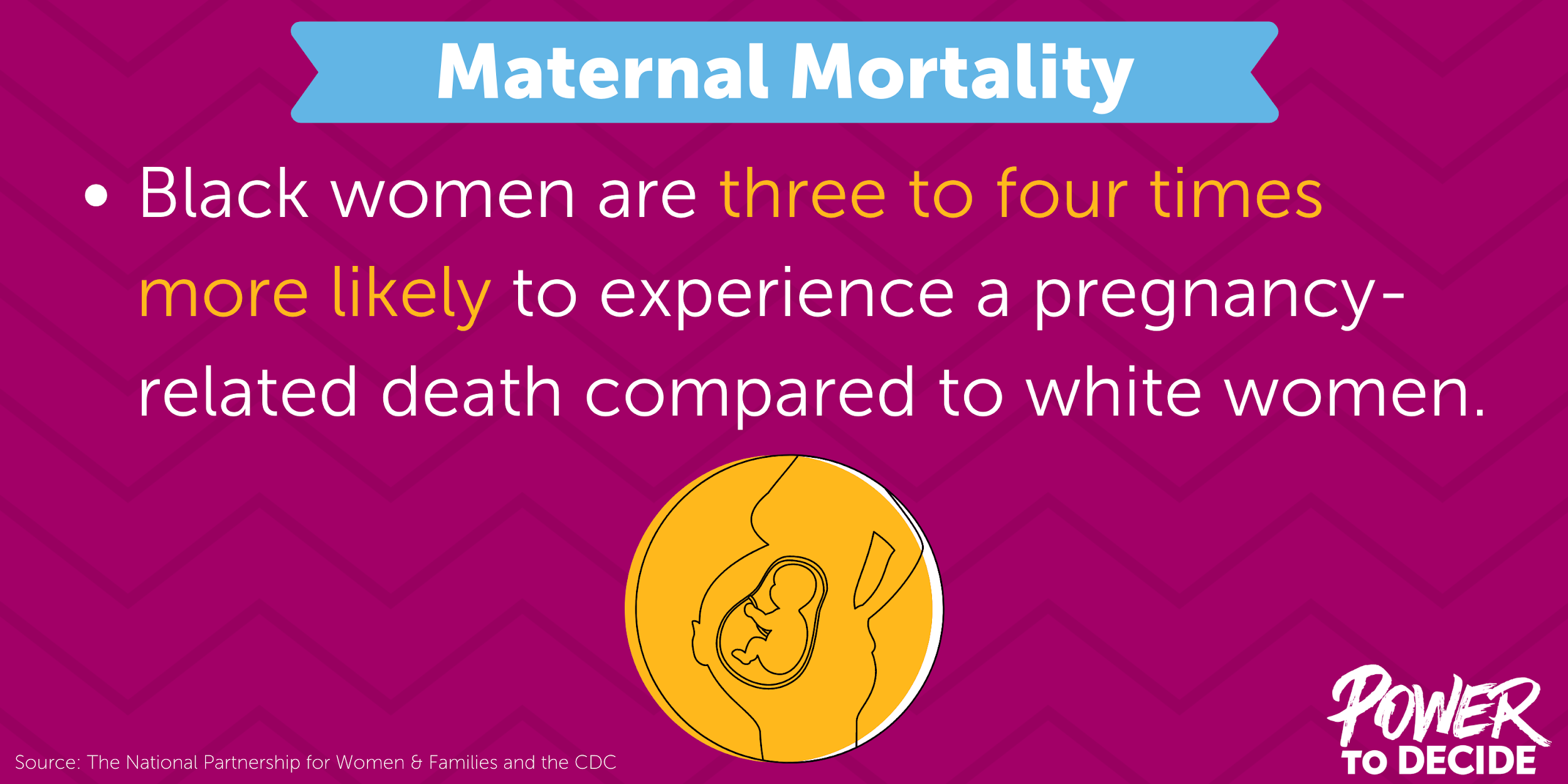
Black women also experience 2.3 times the infant mortality rate compared to their white counterparts and Black babies are 3.8 times more likely to die from complications related to low birthweight than white babies. We need to make pregnancy, birth, and postpartum life safer for Black women and babies in America.
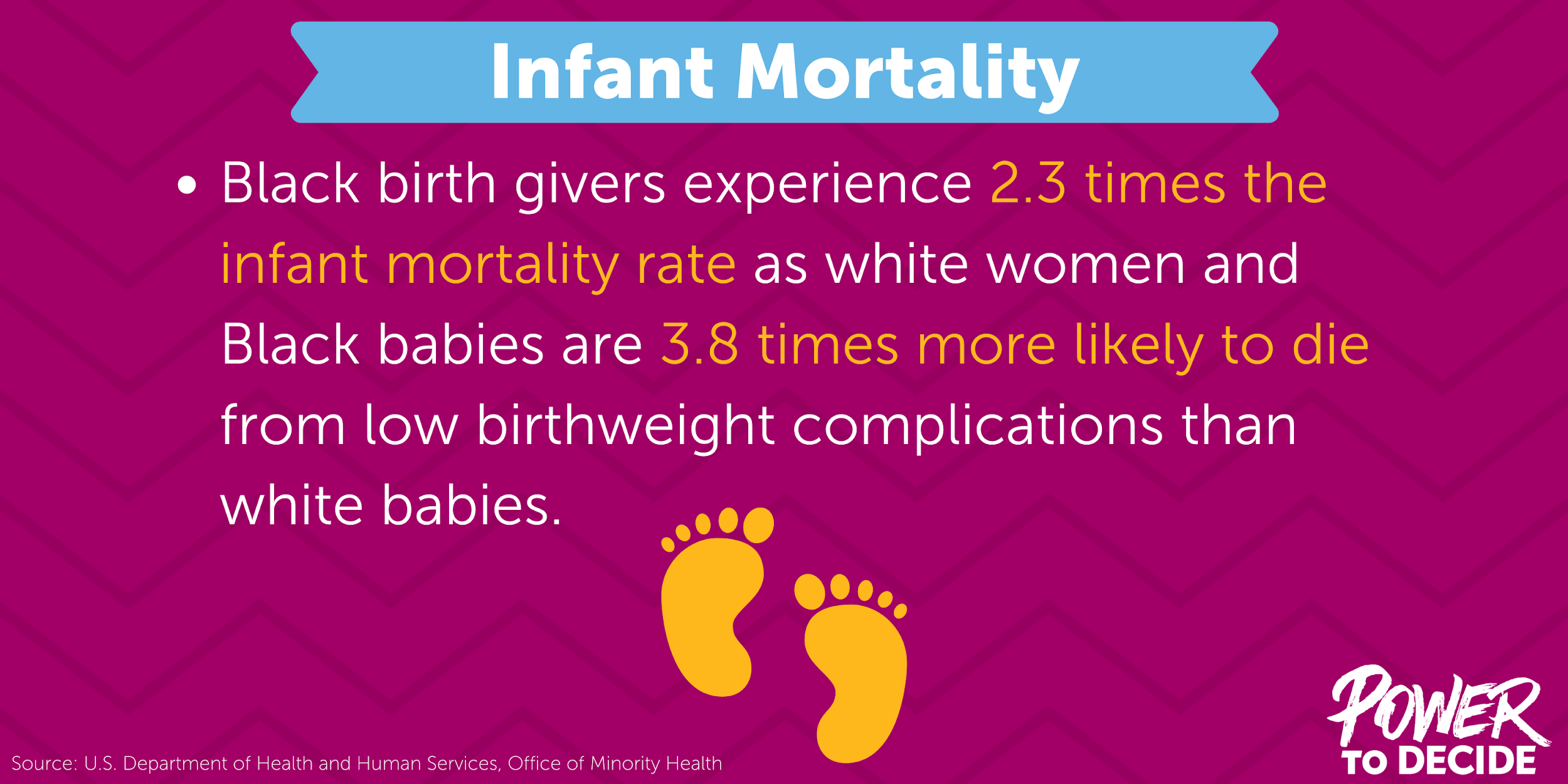
When it comes to accessing abortion care, Black people face unmatched barriers. Their access to abortion is limited, and they could be more likely to suffer from restrictions such as delays and increased costs. The Hyde Amendment currently blocks federal Medicaid funding for abortion services, and only 15 states allow state Medicaid funds to cover abortion care. Approximately 51% of the 7.5 million women who cannot use Medicaid dollars for abortion care are BIPOC (Black, Indigenous, and people of color). Everyone deserves the power to decide their own futures, regardless of the color of their skin.
Everyone also deserves the power to say #ThxBirthControl—yet only about 40% of Black women of reproductive age would be able to afford $10 or less to pay for birth control today. Compared with 91% of their Hispanic and white peers, just 83% of black women at risk of unintended pregnancy are currently using birth control.
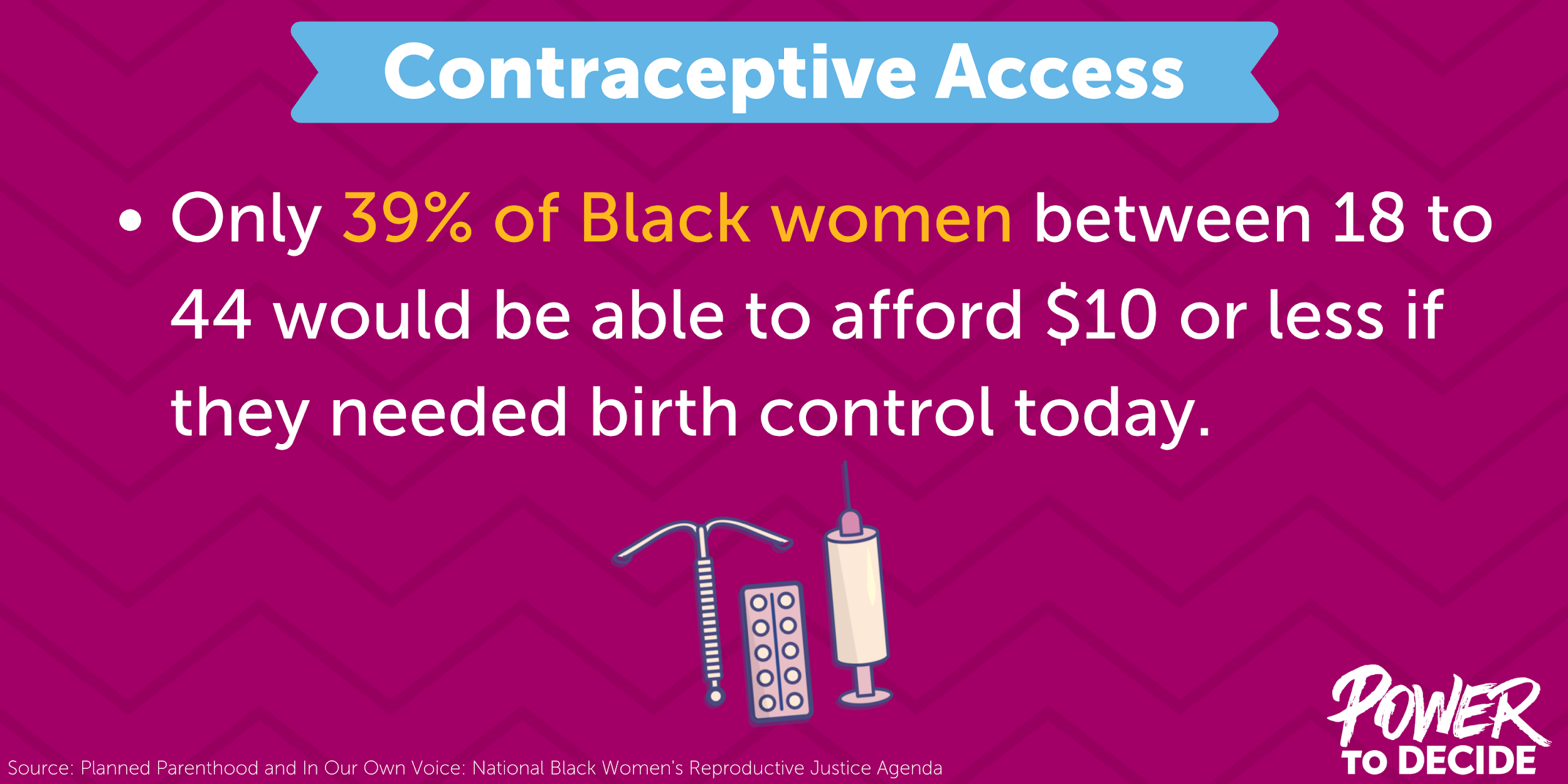
Black women are also less likely to be insured, with countless more experiencing gaps in coverage during their lives. Not being able to access health care can have lasting consequences. It’s extremely important to remember that Black women have faced historical and systemic racism in family planning care and understandably may lack trust in their providers. And they still face discrimination and bias from providers today. Black women deserve care that centers their lived experiences and validates both their needs and wants.
To make reproductive and sexual health care safer for Black women in America, we must acknowledge and address a number of factors. Health care and service providers need to engage in meaningful conversations so that patients are in control of their reproductive well-being. Providers need to listen to Black patients’ perspectives and work with them to meet their health goals. More research and data must also be collected to improve our understanding of Black women’s circumstances and the challenges they uniquely face. We must also better understand and respect their reproductive health goals in order to better address unmet needs.
You can help make a direct impact to reproductive justice work by following, supporting, and donating to these organizations:
- SisterSong Women of Color Reproductive Justice Collective
- Black Mamas Matter Alliance
- In Our Own Voice: National Black Women’s Reproductive Justice Agenda
- Black Women’s Health Imperative
- Black Women for Wellness
- SisterLove, Inc.
- Women With a Vision Foundation
- SisterReach
- SPARK: Reproductive Justice NOW
- New Voices for Reproductive Justice
- The AFIYA Center
- Black Maternal Health Momnibus
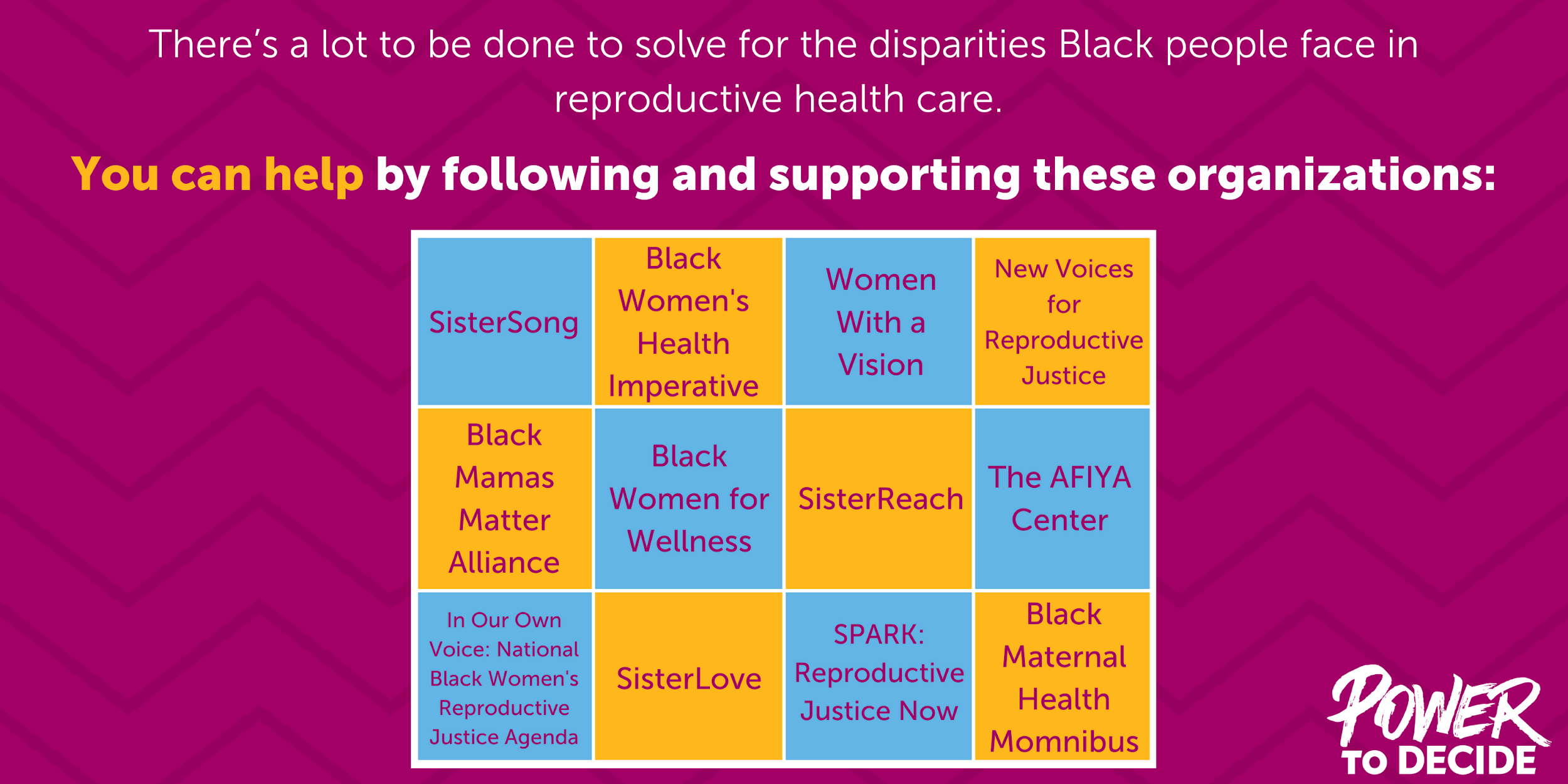
And finally, we must build on the momentum of the moment to increase public awareness around these health disparities, especially those outside the Black community, and encourage everyone to confront institutional barriers that contribute to this public health issue.
